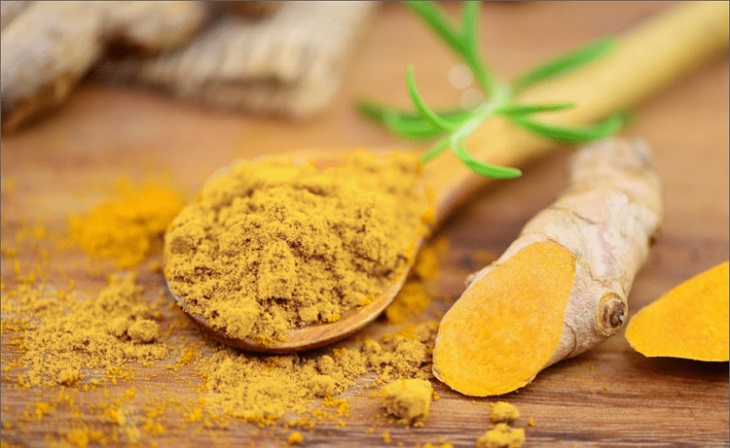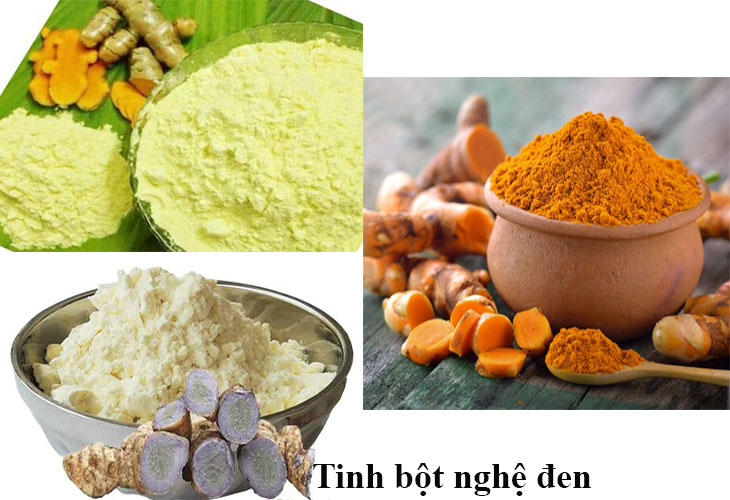1. What is Turmeric Starch and How to Differentiate it from Turmeric Powder?
Turmeric starch is the final product obtained after the fiber is screened, impurities are removed, and the essential oil is separated from turmeric powder, which is made from fresh turmeric. Additionally, nanotechnology is utilized in the production of turmeric starch to maximize its nutrient content.

2. Implications of Incorrect Consumption of Turmeric
Turmeric powder offers various health benefits when consumed correctly, including effective weight loss, improved digestion, diabetes control, arthritis treatment support, and liver detoxification.

However, incorrect consumption of turmeric can have adverse effects on health, such as excessive use leading to diarrhea, body heat, and increased sweating. It is also crucial to avoid neglecting the addition of multivitamins, especially piperine, to enhance nutrient absorption from turmeric. It is important to consider whether certain individuals should avoid consuming turmeric starch, such as women experiencing menstrual cycles or menorrhagia, or those taking blood-related medications, as it can cause hemophilia due to the acid and resin content in turmeric.

3. Proper Ways to Consume Turmeric
Choosing the Right Time to Drink Turmeric
- It is recommended to consume turmeric in the morning.
- Take it approximately 15 minutes before meals.
- If taken after a meal, wait for more than 1 hour before consuming turmeric.
- If consumed after a snack, allow around 20 minutes.

Adjusting the Amount of Turmeric Starch Consumption
It is advised to consume around 2 teaspoons of turmeric powder per day. Excessive consumption may result in side effects such as diarrhea, iron deficiency (in sensitive individuals), and nausea.

Avoiding Consumption with Medications
Although turmeric is beneficial for health, it should be avoided when taking western medications, as it can interfere with the production and function of red blood cells.

Avoiding Consumption during Blood-Related Diseases
Individuals with blood-related diseases, including women during menstruation or menorrhagia, should refrain from consuming turmeric. Turmeric starch has the potential to affect blood circulation.

Choosing the Appropriate Type of Turmeric Powder
Currently, there are three types of turmeric starch available:
- Yellow turmeric starch: Extracted from yellow turmeric, it has a faint turmeric smell and a mild bitter taste.
- Red turmeric starch: Extracted from turmeric with yellow-orange or red-yellow color, it has a slightly strong turmeric smell and a slight bitter taste.
- Black turmeric starch: Extracted from black turmeric root (known as Nga Truc), it has a slightly pungent smell and a bitter taste.

Each type of turmeric starch is suitable for different individuals and purposes. Therefore, it is essential to carefully select the appropriate type of turmeric powder to ensure proper consumption.

For instance: Individuals with digestive issues should consume black turmeric powder (mixed with honey and warm water) before meals, as it stimulates the digestive system and improves the tone of the digestive tract. Black turmeric contains a lower amount of curcumin compared to yellow turmeric, resulting in a gentler effect on the digestive system. Yellow turmeric is recommended for individuals seeking skin beautification, as it contains a higher curcumin content, promoting faster results.

We hope that the information provided above helps you understand the proper ways to consume turmeric. Avoid unwanted consequences by being knowledgeable and responsible.














